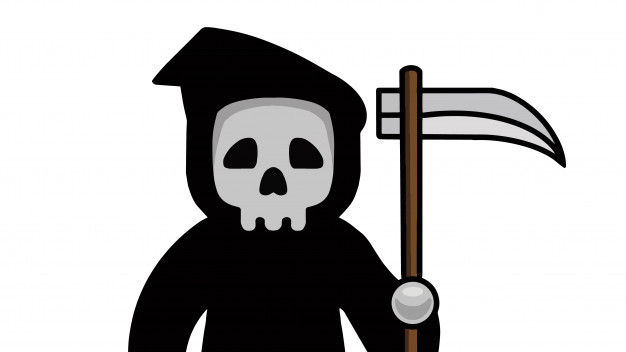The Death Trope Should Die Out
February 11, 2021
WARNING: SPOILERS AHEAD FOR Lord of the Flies, Star Wars: The Rise of Skywalker, Chilling Adventures of Sabrina
Sensitivity Warning: // suicide
Killing off the main character has been a prevalent trope throughout storytelling history. From Shakespeare’s Romeo and Juliet to Emily Brontë’s Wuthering Heights, to modern day media like Game of Thrones and Star Wars, the death trope holds creators in a vice-like grip.
Why, might you ask? Well, everyone loves to see their favorite characters die on-screen, of course!
. . . That was a joke. I’m not psychotic.
The death trope is usually used when referring to the death of a character (for our purposes, we’ll be going over the death of the protagonist and the antagonist) of a book or movie. If you’ve ever become attached to a character, only to go through the crushing process of watching them die, then you’ll understand my aversion to the death trope.
Despite the fact that the majority of the general audience dislikes the trope, creators continue to use it for shock value. Instead of putting deep, meaningful thought into the death of a character, creators seem to only kill off the characters that will make the biggest impact with the audience, even if it doesn’t make any cinematic sense.
However, this isn’t to say that characters should never be killed off. There are times when the trope works, but they are usually few and far between. Killing off the main character should only be used when an author is trying to convey an important message about mortality or to symbolize a deeper meaning, not when they want to shock their audience for lack of a more captivating ending.
William Golding’s Lord of the Flies is one example of the death trope done right. Every character in the novel is there for a reason and each boy represents a key symbol in the overarching allegory that Golding is trying to present. In the novel, Piggy is the physical representation of intelligence, and when he is killed off, his death marks the loss of intelligence and rational thought on the island. Similarly, the boys descend into savagery after they murder Simon, the character who represents civilization.
Unfortunately, most creators nowadays do not put as much thought into their narratives as Golding and merely seek the shock-factor that death brings. The popularity and regularity of this occurrence throughout the film industry makes the death less impactful. If creators simply thought about why, exactly, they were killing off characters aside from shock value, then perhaps their endings would hold more weight.
Nowadays, it seems as if killing off the main character or the love interest is the norm. Instead of giving stories a good twist, like creators intend, the trope only makes the writing seem lazy–especially when it comes to villains.
Take Star Wars: The Rise of Skywalker, for example. One of the main characters, Kylo Ren, who was the antagonist for the majority of the films and was on a redemption arc, was killed off in the last movie. He had just switched sides and joined the heroine, Rey, in an attempt to defeat the real villain. The general audience was filled with hope and excitement when he turned to the Light, only to feel utter disappointment when he died–for seemingly no reason.
It’s one thing to kill off the villain of the story if they have no possible chance of redemption, and while making a 2-dimensional villain is another example of lazy writing, it would be better than having the villain die right after they make the decision to redeem themselves. What message does that send? That death is the only way out after you’ve made bad decisions?
Heroes and villains aren’t the only characters that have high mortality rates; love interests do, too.
In the Chilling Adventures of Sabrina, the last episode of the final season had two main characters die. While this might have been rectified in a fifth season, had it been renewed, the fact still stands that the showrunners decided to kill two fan-favorites. Sabrina, the main character, dies in an attempt to save the world (fulfilling the sacrificial hero trope, but we don’t have time to unpack all of that). Upon seeing Sabrina lying dead, her love interest, Nick, feels that he cannot continue any longer without her, and kills himself.
How is this satisfactory? How does this inspire hope for the future or peace of mind? The short answer: it doesn’t, and the only solution is to have the death trope die out, especially considering the recent events that have taken place. Fictional worlds act as an escape from the harsh reality of life for many all over the world, and bringing real-life tragedies into fictional worlds only adds unnecessary heartbreak.





